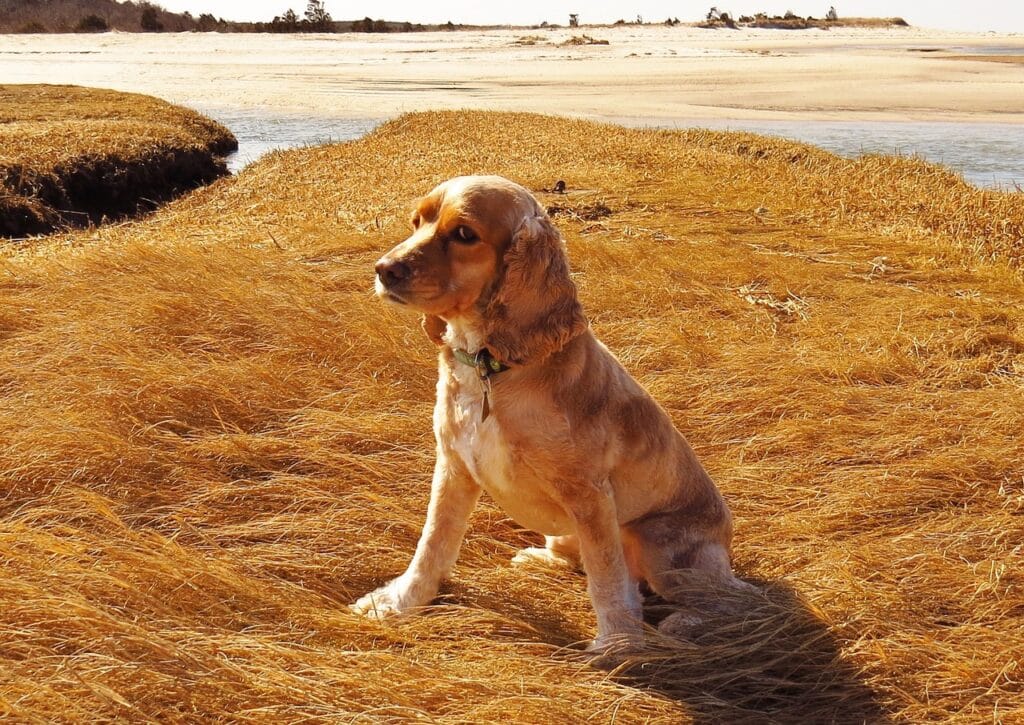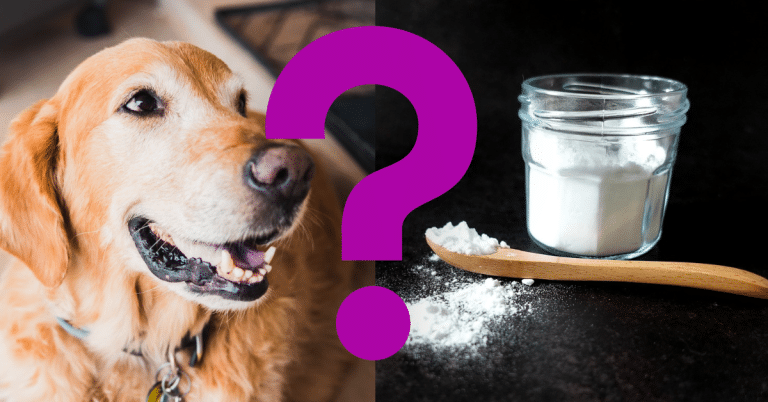Can Dogs Eat Cod? A Vet’s Opinion

Cod is a mild-flavored fish that has white meat. It’s a popular seafood option in many different cuisines around the world. But can you feed cod to your dog?
Yes, in moderation, dogs may eat fish. It’s high in lean protein and provides essential nutrients, including omega-3 fatty acids, which are healthy for their coat and skin. However, ensure the cod is thoroughly cooked, with no added condiments, spices, or oils. Remove any bones to avoid choking or intestinal problems. Introduce new foods gradually to avoid any adverse reactions. Before making significant changes to your dog’s diet, please consult your veterinarian to verify it meets their health needs.
Benefits of Cod for dogs
When cod is consumed in moderation, it can provide various health benefits to dogs. Here are some significant benefits:
- Protein-Rich: Cod is an excellent source of high-quality, lean protein. Protein is required for tissue growth and repair, muscular development, and maintaining a healthy coat and skin.
- Omega-3 Fatty Acids: Cod contains high omega-3 fatty acids, including EPA and DHA. These fatty acids enhance overall cardiovascular health, a lustrous coat, and cognitive function in dogs. They also contain anti-inflammatory effects, which can help dogs who have joint problems or inflammatory disorders.
- Nutrients: Cod includes a variety of vital nutrients, including vitamins B12 and B6, niacin, phosphorus, and selenium. These nutrients contribute to your dog’s overall well-being and aid in maintaining a balanced diet.
- Low In Saturated Fat: Because cod is a low-fat fish, it is ideal for dogs who require a lower-fat diet. It is especially crucial for dogs suffering from certain medical disorders, such as pancreatitis.
- Digestibility: Cod is generally easy to digest, making it an excellent choice for dogs with sensitive stomachs or digestive difficulties. However, ensuring that the cod is thoroughly cooked and served without any additional flavors or oils is critical.
- Weight Management: Cod can be included in a weight management diet for dogs because of its low fat and high protein content. The protein helps to maintain muscle mass while limiting fat consumption.
- Alternative Protein Source: For dogs with allergies or sensitivities to more typical protein sources such as beef or chicken, cod can serve as a hypoallergenic alternative, providing a new protein option that may be tolerated better.
While cod can be a nutritious supplement to your dog’s diet, it must be consumed in moderation and as part of a well-balanced diet. Additionally, before making any changes to your dog’s food, always contact your veterinarian, especially if they have specific health concerns or dietary restrictions.

How to safely give cod to dogs?
When done correctly, feeding cod to your dog can be a healthy supplement to their diet. To ensure a safe and healthful experience, follow these guidelines:
- Cook Thoroughly: Cook fish well before feeding it to your dog. Cooking aids in the elimination of potentially dangerous parasites and bacteria to your dog’s health. Cooking methods that do not require oils or seasonings include boiling, baking, and grilling.
- Remove Bones: Ensure the cod is boneless and clear of small bones, which can pose a choking hazard or create stomach problems. Before presenting the fish to your dog, carefully check it and, if required, debone it.
- Serve In Moderation: While cod is a good source of protein, it should be consumed in moderation. Too much of any new cuisine might cause intestinal distress. Small amounts should be introduced gradually to assess your dog’s reaction and alter feeding sizes accordingly.
- Avoid Seasonings And Additions: Do not add seasonings, salt, garlic, or other additives when preparing cod for your dog. Dogs have different dietary needs than humans, and some flavors are hazardous.
- Check For Allergies: Before adding code to your dog’s diet, be sure he hasn’t had any allergic responses. Begin with a bit of dosage and watch for itching, gastrointestinal distress, or other negative responses. Consult your veterinarian before introducing new foods to your dog if he has a history of allergies.
- Include Cod: In a Balanced Diet: Cod should be included in a diversified and balanced diet. To suit your dog’s nutritional demands, make sure they get a variety of proteins, carbs, and fats.
- Consult Your Veterinarian: Before making significant dietary changes for your dog, consult your veterinarian. They can offer advice based on your dog’s health requirements, age, size, and pre-existing issues.
- Consider Dog Food Formulations: If you prefer a hassle-free choice, commercially available dog food formulations that contain fish, including cod, into their formulas are available. These are designed to suit the nutritional requirements of dogs and can give a handy and well-balanced source of nutrition.
Remember that each dog has different dietary needs, and what works for one may not work for another. Constantly adjust your dog’s food to their unique needs and seek personalized advice from your veterinarian.
Will cod make a dog sick?
Cod is generally safe for dogs when adequately prepared and presented. However, there are hazards involved with feeding any new food to dogs, even cod. Here are some things to think about:
- Germs And Parasites: Raw or undercooked cod may contain parasites or germs that might make your dog sick. To eliminate these hazards, the fish must be fully cooked. Cooking methods that do not require extra flavors or oils include baking, boiling, and grilling.
- Bones: Fish bones can be dangerous because they can shatter, providing a choking hazard or causing digestive difficulties. Before offering cod to your dog, ensure it is boneless and carefully inspect it for any small bones.
- Allergies: Dogs, like humans, can develop food allergies. Begin by introducing a small amount of cod into your dog’s diet to check for unpleasant responses such as itching, vomiting, or diarrhea. If your dog has a history of food allergies, talk to your vet before introducing new proteins into their diet.
- Digestive Upset: Excessive feeding of any new meal, especially cod, might result in gastric distress. Introduce small amounts gradually and observe your dog’s reaction. Reduce or stop feeding cod if you see any signs of gastrointestinal upset, such as vomiting or diarrhea.
- Pre-existing Medical Conditions: Some dogs may have medical conditions that prevent them from eating particular foods. For example, dogs suffering from pancreatitis may require a low-fat diet, and cod, being a lean fish, could be an excellent choice. However, it is critical to speak with your veterinarian to identify the best diet for your dog’s specific health needs.
In conclusion, when eaten in moderation, adequately prepared and boneless fish can be a nutritious addition to your dog’s diet. However, being mindful of potential hazards such as parasites, bones, allergies, and personal health concerns is critical. If you have any worries or queries regarding feeding cod to your dog, seek personalized advice from your veterinarian based on your dog’s health profile.
Can Dogs Eat Cod Variations?
Yes, dogs can eat many types of cod, but it’s vital to examine how the cod is prepared and any additional ingredients that may be included. Here are some frequent cod variations and their considerations:
- Plain, cooked cod with no added seasonings, oils, or additives is a healthy and nutritious dog option. To eliminate the possibility of parasites or hazardous bacteria, make sure it is properly boiled.
- Fish Fillets: Boneless fish fillets are ideal for dogs since they lessen the chance of choking on bones. Before serving, carefully remove any small bones.
- Frozen cod is okay for dogs but must be thawed and fried before giving. To avoid parasites, avoid feeding raw or undercooked fish.
- Canned Fish: Dogs can be fed canned fish, especially in water with no additional salt or seasonings. On the other hand, canning fish with additional oils or sauces should be avoided since they may include toxic substances to dogs.
- Commercial Dog Food with Cod: Cod is a protein ingredient in some dog food formulas. These compositions are specifically tailored to the dietary requirements of dogs. Check that the dog food is from a recognized brand and that it fulfills your dog’s dietary needs.
If you have any concerns regarding your dog’s nutrition or if they have any particular health issues, you should check with your veterinarian. They may advise you on the ideal diet for your specific dog based on characteristics such as age, size, health state, and dietary needs.

Vet’s Summary
In conclusion, dogs can take numerous fish variations, such as plain cooked cod, boneless cod fillets, and specific canned options, as long as they are devoid of dangerous ingredients and correctly prepared. To eliminate the possibility of parasites, properly prepare the cod, remove any bones to avoid choking hazards, and gradually introduce new foods to assess the dog’s response.
Given the importance of intestinal health in dogs, owners may want to incorporate probiotic pills into their pet’s diet. Probiotics can help maintain a healthy gut microbiome by helping digestion, nutrient absorption, and immune system activity. Probiotics might be especially beneficial during food changes or if the dog has digestive difficulties. However, before introducing supplements, owners should speak with their veterinarian to confirm they are acceptable for their dog’s needs and health situation.
Videos to watch
If you are wondering what related foods are good to give your dog, watch this:
And if you want to know what a dog can NOT eat, watch this:






